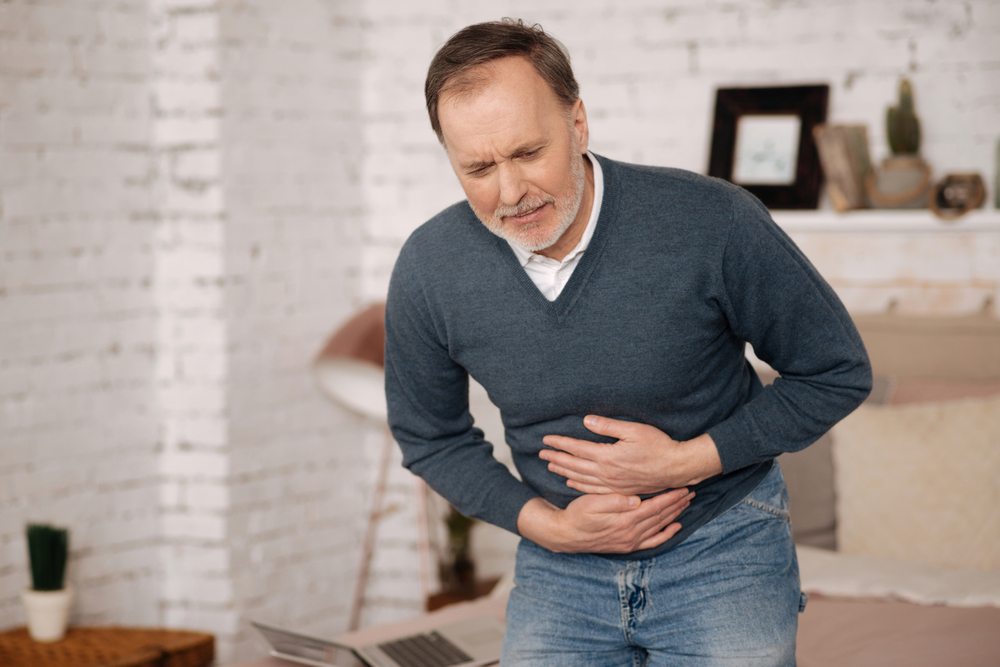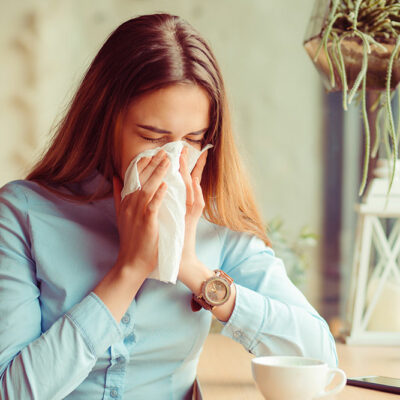
Triggers for Ulcerative Colitis Flareups
Ulcerative colitis (or UC) is a very uncomfortable and chronic inflammatory disease that leads to the swelling of the large intestine and rectum. This chronic tissue inflammation will wear down and damage the large intestine, causing the development of sores, or ulcers, along the intestinal tract and rectum. Periods when UC symptoms are active are typically known as “flare-ups”. These are often followed by periods of remission, when symptoms are not acting up.
Symptoms typically experienced by ulcerative colitis patients include:
- Abdominal pain
- Fever
- Bloody bowel movements
- Dehydration
- Fatigue
- Sudden weight loss
- Diarrhea
Common triggers that prompt an ulcerative colitis flareup include:
1. Medication use: antibiotics and NSAIDs
A medication you’re taking to treat another illness can also trigger a UC flareup, particularly if it is an antibiotic, or an over the counter nonsteroidal anti-inflammatory drug (NSAID) such as ibuprofen and aspirin. Antibiotics tend to disrupt the normal balance of the intestinal bacteria in the gut, leading to the flare-ups, while the NSAIDs tend to irritate the colon directly before causing the flares. Note that experiencing flares doesn’t necessarily mean that you have to stop taking your NSAID medications or antibiotics, but use it as an opportunity to speak to your doctor before taking them. For instance, if you usually experience abdominal pain when you take an NSAID, you may be given the option of using acetaminophen instead. The same goes for antibiotics.
2. Alcohol and caffeine
Alcohol has elements that cause inflammation, and directly harms the gut barrier function. More specifically, consuming alcohol reduces the protective molecules located in the gut and increases bowel permeability. These two are important markers of ulcerative colitis, and they can contribute to a flare of the disease. Caffeine in coffee, tea, energy drinks and chocolate can make the flares worse because the chemical component is a stimulant that can keep your intestines going. So it’s worth replacing the caffeine-containing foods and drinks, as well as alcohol-containing drinks including beer, liquor and wine to effectively prevent the UC flare-ups.
3. Stress
Stress is said to have a reciprocal association with ulcerative colitis. When you’re stressed, you’d easily experience flares, and experiencing the painful UC symptoms can easily increase your stress levels. This phenomenon can be explained in many ways, and one of them is the effect of stress on the hormone levels in the body. Remember that hormones regulate many bodily processes, and the immune and inflammatory response are no exception. Stress can therefore keep your body inflamed and make the UC symptoms worse. That means that you should take all possible measures to avoid stress and get into stress-busting activities like meditation when experiencing UC flares.
4. Infection
According to research, an interaction between bacteria or a viral infection in the colon and the immune response of the body may trigger ulcerative colitis. Usually, the proteins and cells making up the immune system are meant to protect you from any form of infection. A normal immune response generally causes temporary inflammation that helps in combating illnesses or an infection, and the inflammation then fades as your health is restored. In some cases, the inflammation may persist and the body keeps sending white blood cells to combat the infection. These cells may produce chronic inflammation in the intestinal lining, exacerbate ulcerative colitis and trigger the flare-ups. The most obvious way to prevent infections is taking precautionary measures like improving your personal hygiene, maintaining clean eating habits, exercising regularly to promote healthy bowel movements, and regular checkups with your doctor.


